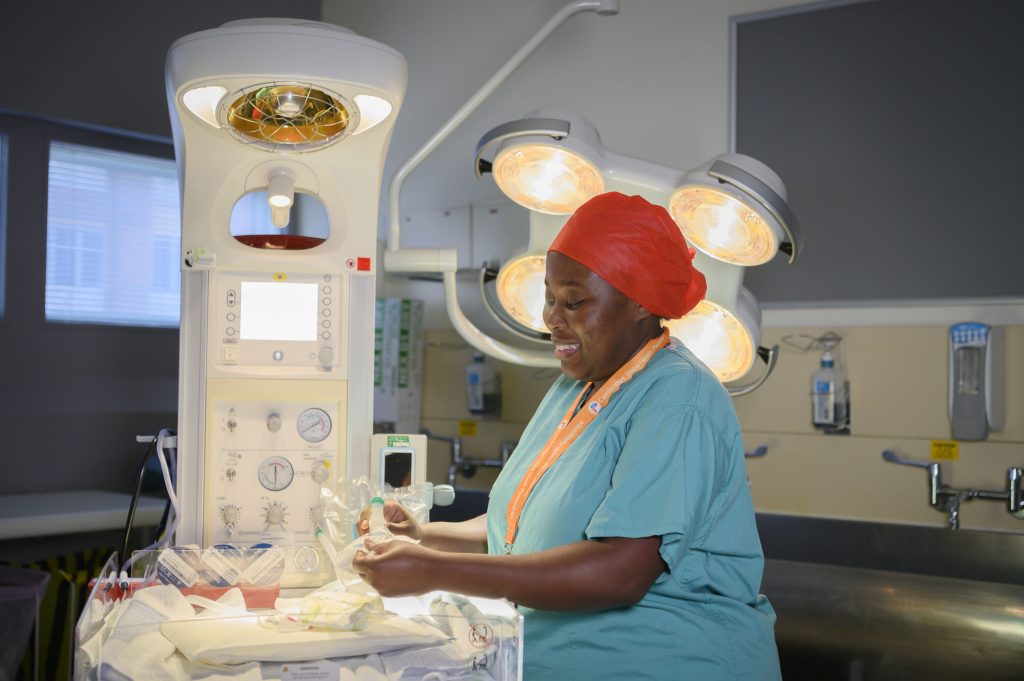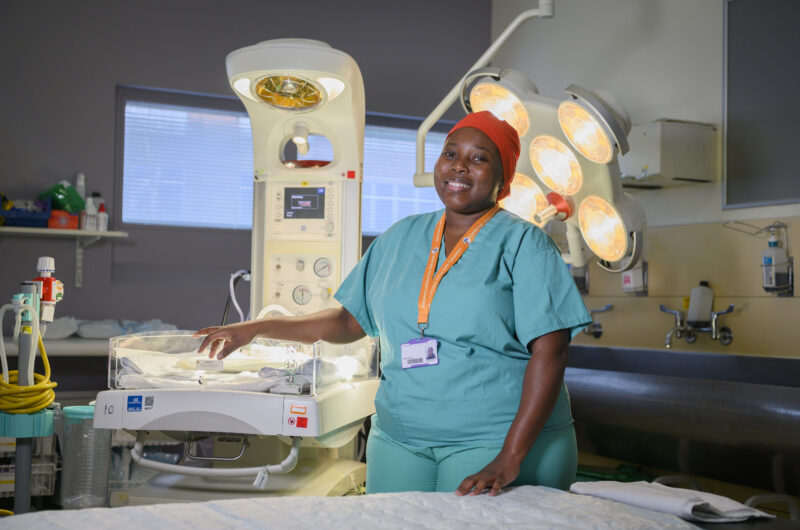Friday 1 March marks Overseas NHS Workers Day, a day to recognises the extraordinary contribution that people who’ve moved or migrated to the UK make to our health service – as well as to healthcare globally. At CGHP we acknowledge the particular contribution overseas staff make to health partnerships between the UK and low- and middle-income countries. By participating in partnerships – often with their country of heritage – these staff bring unrivalled cultural understanding and awareness, as well as the unique skills and experience gained through their previous work and training overseas.
Mercy Adera is a scrub nurse at the Rosie Hospital Theatres. Originally from Kenya, she has been working at The Rosie for seven months. Mercy came to the UK for professional development, to ensure she stays up to date with skills and best practice in her profession.
“The resilience and resource optimisation that I learned in my home country are most valuable to me in the UK. They help me to go out of my way to ensure my patients are given quality care,” explains Mercy. “In the UK I have learned confidence and leadership skills. This makes me be able to interact well with my colleagues and my patients.”
In 2022, Mercy volunteered her time and expertise to help deliver a training course in Sepsis Management and Infection Prevention and Control at Kakamega Hospital in western Kenya as part of the CGHP supported Kakamega Cambridge Antimicrobial Stewardship partnership.
“I decided to get involved so that I could give back to my community. Coming to the UK has exposed me to various new ways of providing healthcare to my patients and this made me want to transfer the knowledge to other healthcare professionals back home as I was aware of the challenges we face back in Kenya.”
Participating in global health has had a big impact on Mercy both personally and professionally. “I have learnt to be more confident at work. I have also become a good team player when it comes to multidisciplinary teams, because CGHP gave me the platform to work with a multidisciplinary team. I also have good communication skills.”
So what would Mercy say to other overseas NHS staff considering global healthcare work? “Working with a global health team helps bridge the gaps in healthcare because knowledge is shared between the partnerships. It gives me a feeling of fulfilment that while I’m here in the UK, the hospitals back home are being equipped to provide better healthcare to the population. The diversity of ideas gained while working in a multidisciplinary team helps solve problems as everyone sees a different solution to the problem at hand and this makes it easier to come up with solutions to a health gap identified.”

Interested in participating in global health but not sure where to begin? Find out about the support, advice and funding CGHP offers you or email us anytime time at info@cghp.org.uk.
To find out more about the significant contribution diaspora staff make to the NHS and global health, and how we can better enable, engage and empower them, read THET’s policy report ‘Experts in our Midst‘.
Return to case studies

